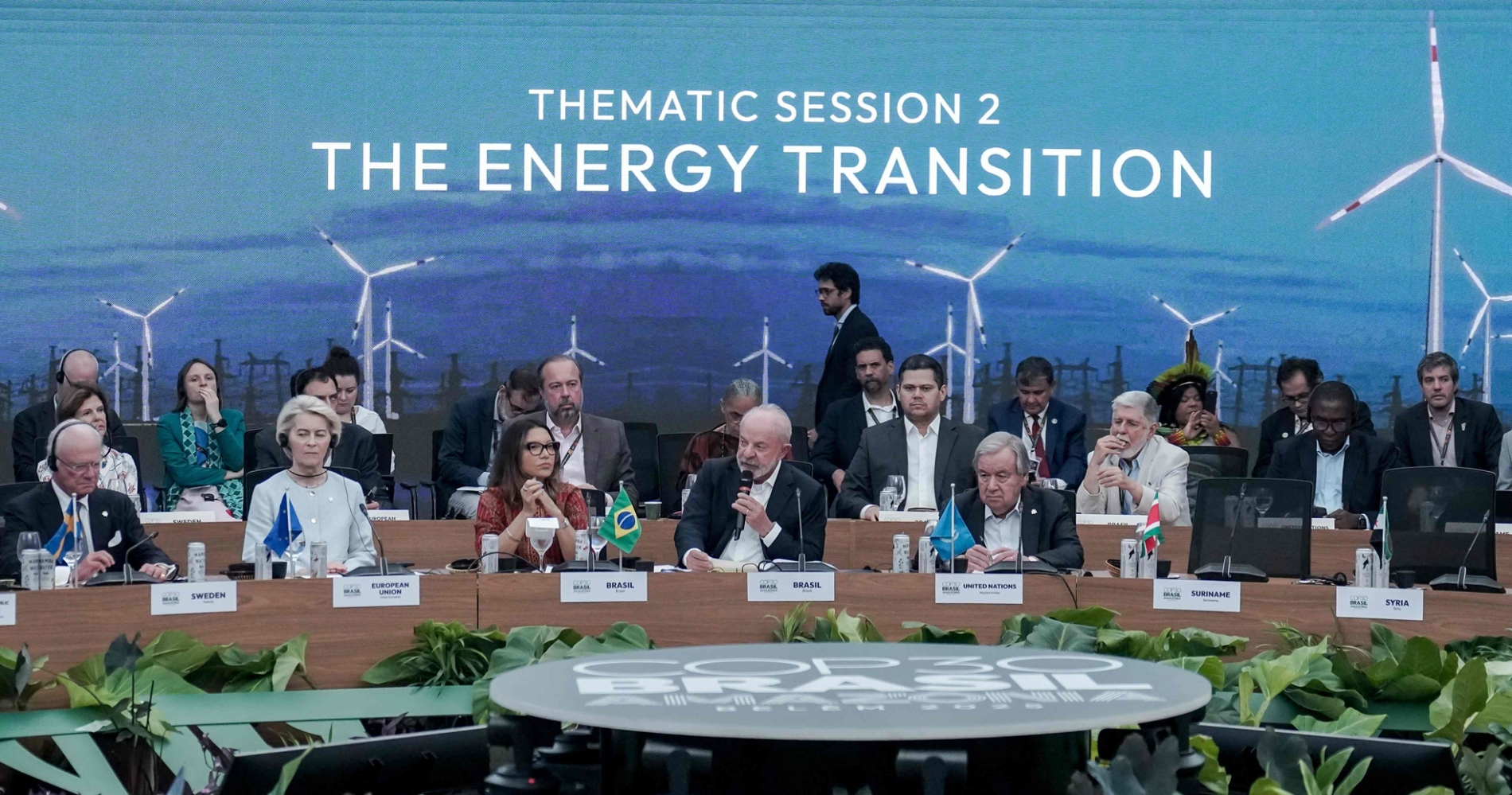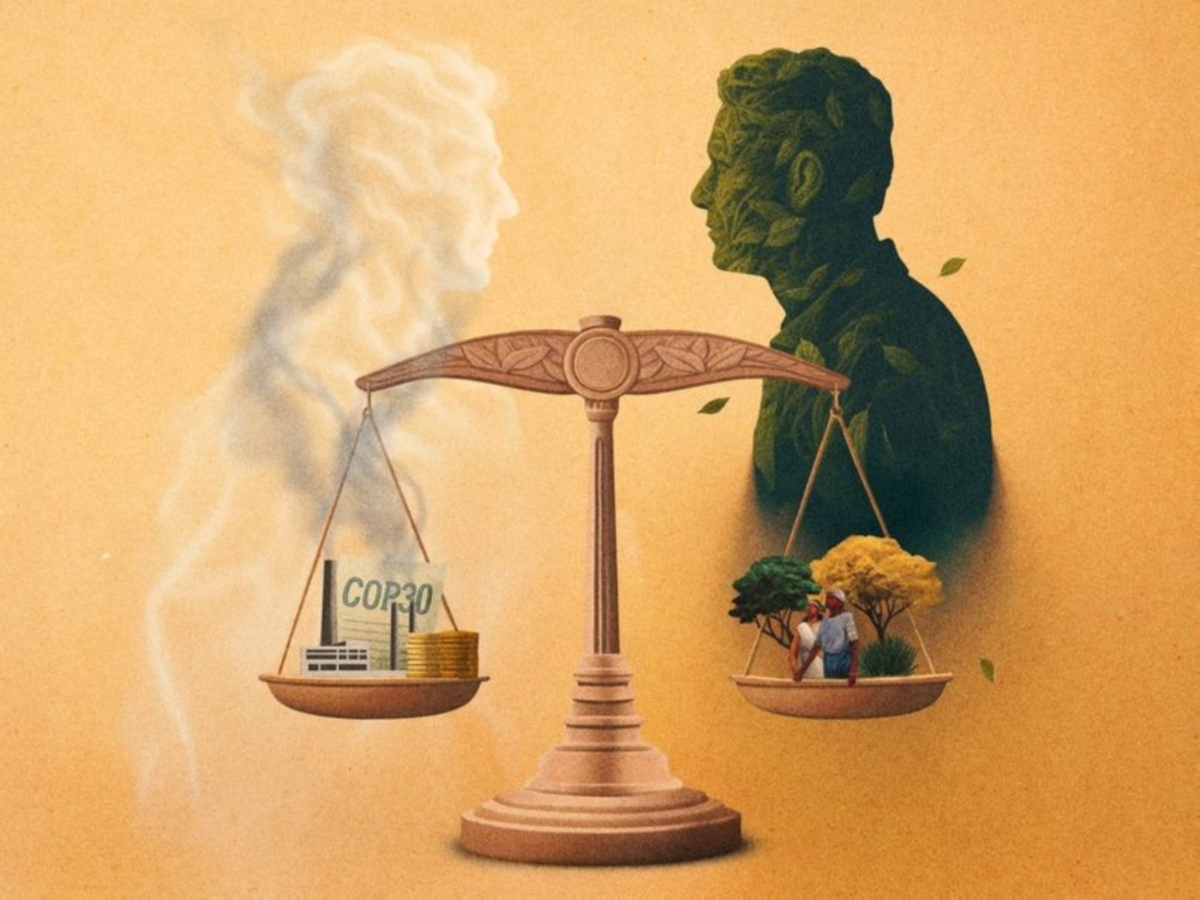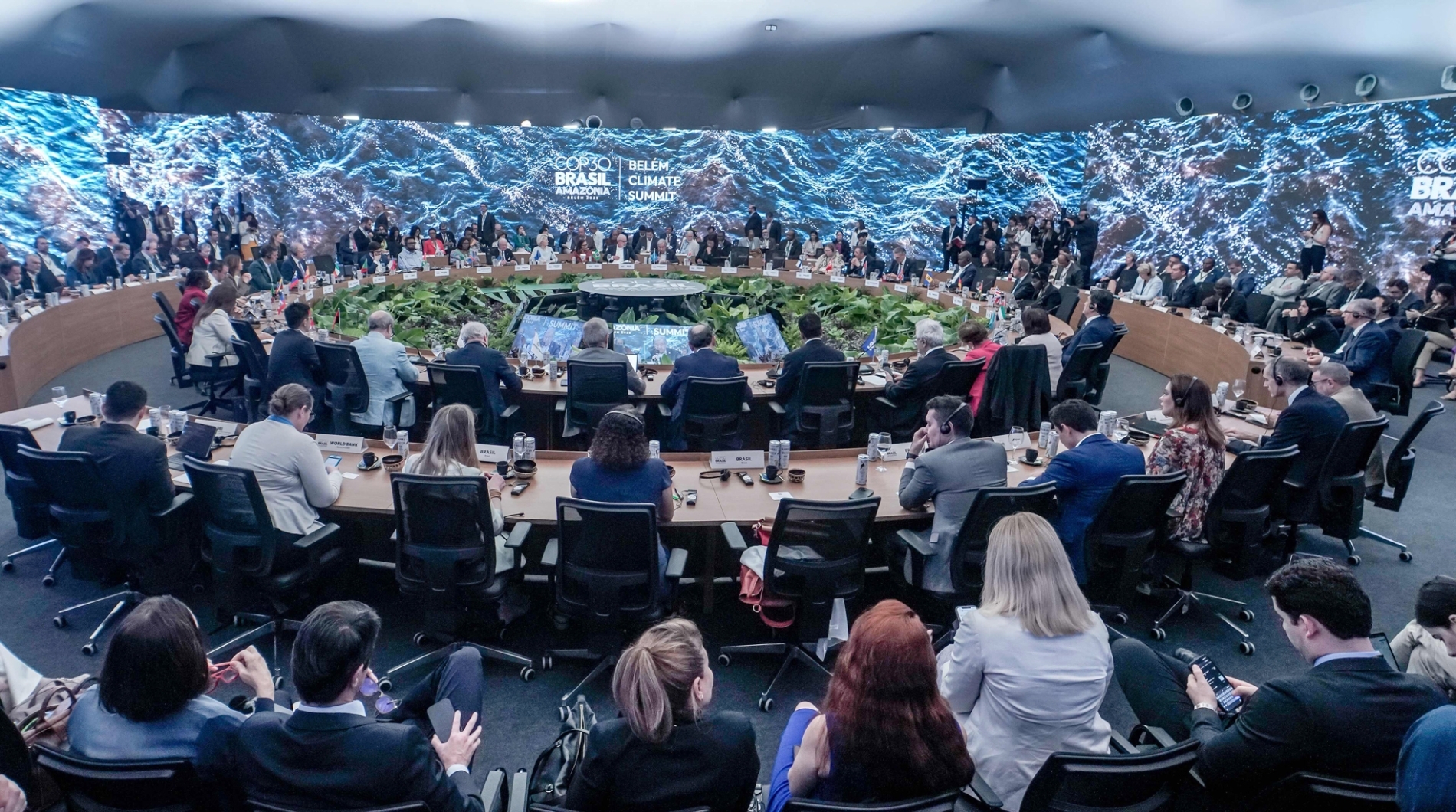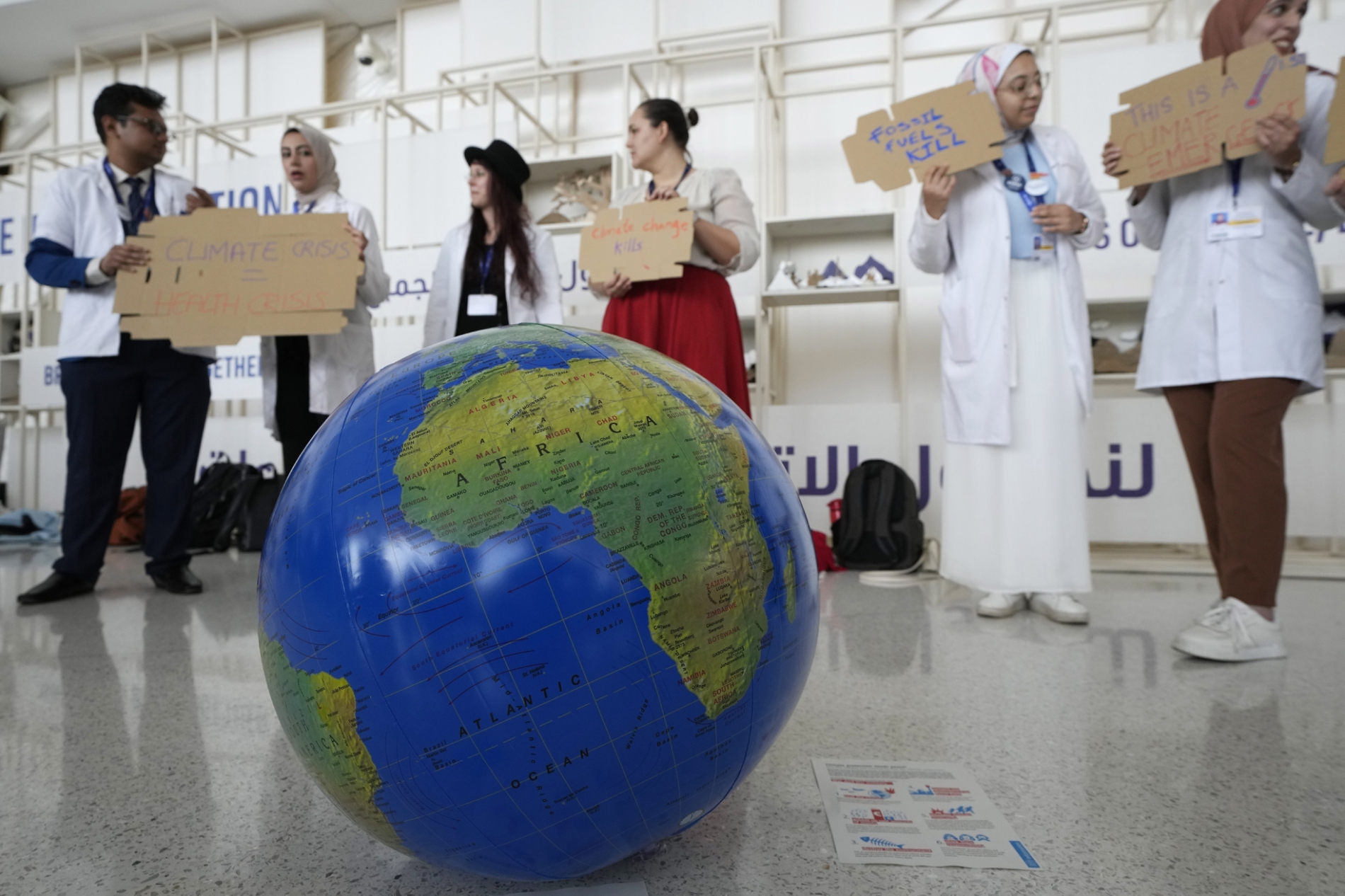At the opening of the 30th session of the United Nations Climate Change Conference (COP30), Simon Stiell, executive secretary of the United Nations Framework Convention on Climate Change (UNFCCC), issued a stark warning against government inaction in the face of environmental disaster.
“Not one single nation among you can afford this, as climate disasters rip double-digits off GDP,” said Stiell. “To falter whilst mega-droughts wreck national harvests, sending food prices soaring, makes zero sense, economically or politically. To squabble while famines take hold, forcing millions to flee their homelands, this will never be forgotten, as conflicts spread. While climate disasters decimate the lives of millions, when we already have the solutions, this will never, ever be forgiven.”
Being hosted by Brazil in the city of Belém, under the presidency of André Corrêa do Lago, COP30 comes at a critical time in the battle against climate change. While global temperatures have not yet permanently exceeded the Paris Agreement’s 1.5°C limit, a temporary overshoot is likely within the next few years; global emissions continue to climb; and the window to avert further warming is narrowing fast.
Taking place between 10 and 21 November, and as the first COP held in the Amazon region, COP30 will place a renewed focus on the role of forests, biodiversity, and indigenous communities in climate mitigation. It also represents a crucial moment for countries to update their nationally determined contributions (NDCs) ahead of 2035, demonstrating how they will accelerate the transition to clean energy, phase out fossil fuels, and build resilience against increasingly severe climate impacts.
Notably, the presidencies of COP28 in the UAE, COP29 in Azerbaijan, and COP30 in Brazil form what is known as the ‘Troika,’—a joint cooperation mechanism designed to monitor the outcomes of these conferences and ensure the desired progress in their implementation. This ongoing coordination is reflected in the key themes and agenda items of both COP29 and COP30.

Finance tops the COP30 agenda
The COP30 agenda spans around 30 topics, organised under six main pillars that broadly align with the priorities and interests of the host nation. Strong emphasis is being placed on the energy, transport, and industrial sectors, highlighting Brazil’s advances in renewable energy and the development of sustainable fuels. The summit is also expected to assess global progress to triple renewable energy capacity by 2030, a commitment first introduced at COP28 in 2023.
Finance remains the most significant obstacle to advancing the renewable energy field. In this context, Shehnaaz Moosa, director of SouthSouthNorth, told Al Majalla that the sector urgently requires sufficient funding to strengthen economic resilience and mitigate the effects of climate change.
She highlighted the energy challenges facing the African continent and emphasised the need for support that contributes to global stability. “Providing grants and affordable financing can transform commitments into concrete actions for developing countries,” she said.
The Brazilian presidency is introducing the Belém 4x Commitment for Sustainable Fuel, an initiative aimed at quadrupling the production and use of sustainable fuel by 2035. The goal is to cut greenhouse gas emissions resulting from fossil fuel combustion and to help meet the Paris Agreement target of limiting global warming to no more than 1.5°C by 2030.
Protecting tropical forests and oceans
Brazil is home to roughly 60% of the Amazon rainforest, a tropical biome celebrated for its extraordinary biodiversity. The Brazilian presidency has expressed a strong commitment to forest conservation through the launch of the Tropical Forests Forever Facility, an investment fund aimed at mobilising financial resources for tropical forests. The initiative seeks to raise approximately $125bn to support developing countries that maintain and protect their forested regions.

Brazil also boasts an Atlantic coastline of nearly 7,400km, making both forests and oceans central to its economy and environmental development strategy. COP30 aligns with the outcomes of the 2025 UN Ocean Conference, held in Nice, France, in June 2025.
Strengthening food security and agriculture is also a priority. More than 1.2 billion people around the world work in agriculture, a sector that provides the main source of food for most of the global population. However, it is also one of the most vulnerable to climate change, with direct implications for global food security.
Consequently, agriculture and food feature prominently on the COP30 agenda, especially as shifting the sector towards sustainability will demand significant financial investment.
Speaking to Al Majalla, Lisa Moon, president and CEO of The Global FoodBanking Network, stated: “The link between the food system and climate change is clear and powerful.” She emphasised that “one of the most significant opportunities is reducing food waste,” which can help cut harmful emissions, especially methane. “Cutting food waste helps people and communities,” added Moon. “This is critical in a world where more than 670 million people, about one in every 11, suffer from hunger.”
The future of cities and AI
Urban development, infrastructure, and water-related concerns hold a prominent place on the COP30 agenda, with a particular focus on sustainable cooling in buildings. At COP28, the Global Cooling Pledge was launched with the goal of cutting emissions from cooling systems by 68% by 2050. This commitment has continued to gain support and was further developed at COP29.
In this context, the Brazilian presidency has expressed its support for the ‘Beat the Heat Implementation Drive’ initiative, which aims to promote sustainable cooling solutions and assist urban areas in adapting to increasing temperatures.

According to Alastair Mayes, senior programme associate at the Climate Policy Initiative, cities “are responsible for more than 70% of global emissions and are highly exposed to climate risks, yet they receive only a fraction of the necessary funding.” He highlighted the scale of the financial gap facing urban areas, stating: “Cities need approximately $4.3tn annually until 2030 just for climate mitigation, a figure that dwarfs the current allocation of only $831bn dollars.”
“With the Baku-Belém roadmap charting a path to mobilise $1.3tn annually, empowering local governments will be essential to turning commitments into real impact,” added Mayes. COP30 also places strong emphasis on equipping stakeholders with the resources and tools needed to accelerate climate action, with a focus on finance, technology transfer, capacity building, and the integration of AI and infrastructure. It further supports the safeguarding of information and security in climate-related efforts, alongside other enablers to help fast-track the progress of climate action.
Health, human development, and poverty
The COP30 agenda places significant emphasis on human and social development, focusing on efforts to enhance the resilience of the health sector and combat hunger and poverty, especially in the context of climate change. It also supports education, capacity building, and the preservation of cultural heritage from environmental threats associated with climate disruption.














